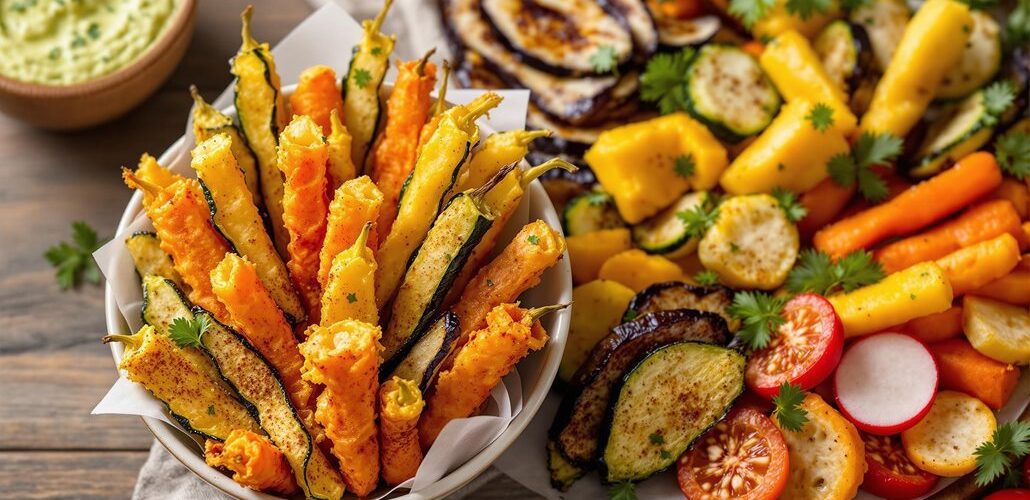
Veggie Straws are not compatible with a ketogenic diet due to their high carbohydrate content and processed ingredients. With approximately 14.5 grams of net carbs per 28-gram serving, they approach the daily carbohydrate limit of most strict keto plans, which is typically 20 to 30 grams. The presence of potato starch, corn starch, and cane sugar further contributes to this heightened carb count, disrupting ketosis. Additionally, refined oils in these snacks can lead to inflammatory responses. For those seeking keto-friendly options, alternatives like cheese crisps and seaweed snacks could be more suitable. Explore further to uncover more detailed insights.
Key Takeaways
- Veggie Straws have a high net carb content of 60.71g per 100g, making them unsuitable for keto.
- A 28g serving contains 14.5g net carbs, nearly reaching the daily keto limit.
- Ingredients like potato and corn starch contribute significantly to the high carbohydrate content.
- The processed nature includes additives and refined oils, hindering ketosis maintenance.
- Keto-friendly alternatives include cheese crisps, pork rinds, and homemade veggie chips.
Keto Compatibility of Veggie Straws
When evaluating the keto compatibility of Veggie Straws, it becomes evident that their high carbohydrate content makes them unsuitable for a ketogenic diet. With approximately 60.71g of net carbs per 100g serving, these snacks considerably exceed the ideal daily net carb allowance for individuals aiming to maintain ketosis, which typically ranges between 20g and 30g.
The presence of ingredients such as potato starch and cane sugar contributes to this enhanced carb count, underscoring the processed nature of Veggie Straws and their incompatibility with keto guidelines. Additionally, like many processed snacks, they often contain hidden sugars that can disrupt ketosis.
A single serving of 28g, which equates to about 40 straws, delivers around 14.5g of net carbs. Such a substantial portion of carbs from a modest snack complicates the ability to adhere to a low-carb, high-fat keto regimen.
Additionally, the absence of keto-friendly sweeteners means Veggie Straws fail to offer any alternatives for reducing their carbohydrate impact. For individuals committed to a ketogenic lifestyle, selecting snacks that align closely with keto macros is essential.
Exploring options that emphasize low net carbs and incorporate keto-friendly sweeteners can better support dietary goals. As a result, Veggie Straws do not present a viable snacking option for those on a strict keto diet.
Carbohydrate Content Analysis
Veggie Straws exhibit a high net carbohydrate content of approximately 60.71g per 100g serving, primarily due to ingredients such as potato starch and corn starch.
This substantial carbohydrate presence can greatly impact ketosis, as a typical 28g serving nearly meets the entire daily carb limit for strict ketogenic adherents.
Unlike low-carb substitutes such as cauliflower or zucchini, which are ideal for a keto diet, Veggie Straws are less suitable for maintaining ketosis due to their high carb content.
Consequently, consuming Veggie Straws may raise blood sugar levels, posing a challenge for those managing carbohydrate intake to maintain ketosis.
High Net Carb Content
The carbohydrate profile of Veggie Straws reveals a substantial net carb content that challenges their suitability for a ketogenic diet. With a high net carbs measure of 51.79g per 100g, Veggie Straws far exceed the net carb content permissible for individuals adhering to a ketogenic regimen, which typically limits daily carb intake to between 20g and 30g to maintain ketosis.
Specifically, a single 28g serving of Garden Veggie Straws contains approximately 14.5g of net carbs, a significant portion of the daily carb allowance for those on a ketogenic diet.
The high net carb content in Veggie Straws is largely attributed to their processed nature. Key carbohydrate sources include potato starch, potato flour, and corn starch, each ingredient contributing to the overall carb count and diminishing their compatibility with low-carb dietary frameworks.
This processed nature categorizes Veggie Straws as moderate to high-carb snacks, rendering them an unsuitable choice for those seeking to maintain a state of ketosis.
Although marketed as a healthier snack option, the significant carbohydrate content of Veggie Straws underscores the importance of scrutinizing nutrient labels, particularly for individuals following a ketogenic lifestyle.
Impact on Ketosis
Analyzing the carbohydrate content of Veggie Straws offers a clear understanding of their impact on ketosis, particularly for individuals adhering to a ketogenic diet. With approximately 14.5g of net carbs per 28g serving, Veggie Straws present a significant challenge for maintaining ketosis, given that the ideal daily net carb limit for a keto diet ranges from 20g to 30g.
The minimal fiber content (0.5g) contributes to a high net carb ratio, underscoring their potential to hinder the metabolic state necessary for ketosis.
Varieties of Garden Veggie Straws further amplify this concern, containing between 16g to 17g of total carbohydrates per serving. The primary sources of these carbohydrates are potato and corn starches, both of which are known for their high glycemic indices.
This carbohydrate profile classifies Veggie Straws as a moderate to high-carb snack, making them unsuitable for anyone following a strict keto diet.
Given their processed nature and heightened carbohydrate levels, Veggie Straws are best avoided on keto meal plans aimed at maintaining ketosis. Their inclusion could easily exceed the recommended net carb intake, thereby disrupting the body's ability to remain in a fat-burning state.
Impact of Sugar on Ketosis
In the domain of ketogenic diets, understanding the impact of sugar on ketosis is fundamental for successful adherence. Veggie Straws, containing cane sugar, a high-glycemic sweetener, can greatly raise blood sugar levels, consequently hindering the maintenance of ketosis.
This rise triggers increased insulin production, which shifts the body from fat-burning mode to glucose-burning mode. Maintaining a low sugar level is vital for individuals working to stay within the ketogenic state. The presence of high-glycemic sweeteners in processed snacks like Veggie Straws renders them unsuitable for those adhering to a strict ketogenic regimen, as they can disrupt the delicate balance required to sustain ketosis.
To effectively manage daily net carbs within the limit of 20g – 30g essential for ketosis, awareness of sugar content in dietary choices is important. Keto-friendly sweeteners such as stevia, monk fruit, and erythritol are recommended alternatives that do not markedly affect blood sugar levels.
These sweeteners provide a means to satisfy sweet cravings without jeopardizing ketosis. As a result, choosing snacks and ingredients that align with the low-carb, high-fat principle of a ketogenic diet is essential for those committed to achieving and maintaining ketosis.
Refined Oils and Keto Diet
Refined oils, commonly found in processed snacks like Veggie Straws, pose significant challenges for individuals adhering to a ketogenic diet. These oils, including canola, safflower, and sunflower, undergo extensive processing that often involves high heat and chemical extraction.
This process strips away beneficial nutrients and introduces the potential for oxidation. Oxidized oils can lead to inflammation, undermining the health benefits sought by those on a ketogenic diet. For example, oils high in omega-6 fatty acids, such as soybean and corn oil, can contribute to inflammation and disrupt the balance with omega-3s.
For individuals committed to keto, the emphasis should be on selecting healthier fat sources. Olive oil, coconut oil, and avocado oil are excellent alternatives, as they retain their nutritional integrity and support ketosis. Consuming refined oils can inadvertently increase net carbs, which are essential to monitor to stay within the ideal daily carb allowance for ketosis.
Consider these points when scrutinizing oil choices for a ketogenic diet:
- Refined oils increase oxidation risks, leading to inflammation.
- Healthier fat sources support ketosis without compromising nutrient intake.
- Processed oils may contain hidden net carbs impacting ketosis.
- Choosing oils wisely can help maintain the ideal daily carb allowance.
- Understanding oil processing methods aids in making informed dietary choices.
Detailed Nutritional Profile
When examining the nutritional profile of Veggie Straws, it becomes evident that their high carbohydrate content poses a significant challenge for those following a ketogenic diet. This is particularly important because the ketogenic diet relies on low carbohydrate intake to maintain ketosis and manage blood sugar levels effectively.
A standard serving size of 28 grams contains approximately 14.5 grams of net carbs, highlighting their high in carbohydrates composition. For individuals adhering to a keto diet, where the recommended daily net carb intake is typically limited to 20 to 30 grams to maintain ketosis, this represents a substantial portion of the daily allowance. The total carbohydrate content escalates to 51.79 grams per 100 grams, underscoring their unsuitability for those on a strict keto diet.
Furthermore, the macronutrient distribution of Veggie Straws includes 130 calories per serving, with 7 grams of fat and a mere 0.5 grams of protein.
This composition, combined with their processed nature due to the inclusion of ingredients such as potato starch, potato flour, and corn starch, further accentuates their incompatibility with a keto diet. The high carb load and minimal protein content do not align well with the ketogenic principles, which prioritize low carbohydrate intake and moderate protein consumption.
Consequently, Veggie Straws are not suitable for strict keto adherence.
Ingredient Evaluation
An evaluation of Veggie Straws reveals that the primary ingredients, such as potato starch and corn starch, contribute notably to their high carbohydrate content, posing challenges for those adhering to a ketogenic diet.
The inclusion of refined oils like canola and sunflower may also be problematic, as their potential to oxidize can lead to inflammatory responses.
Additionally, a reduced gut microbiome diversity can be an issue on the keto diet, which is worth considering when evaluating processed snacks like Veggie Straws.
While additives like spinach powder and colorants such as beetroot powder enhance visual appeal, they offer minimal nutritional benefits within a keto framework.
High-Carb Ingredients Present
Veggie Straws, often perceived as a healthier snack alternative, are primarily composed of high-carb ingredients that can undermine a ketogenic diet. The core ingredients like potato starch, Potato Flour, and corn starch considerably contribute to their high net carbs, totaling approximately 14.5g per serving.
This carbohydrate content nearly exceeds the daily limits set by a ketogenic diet, typically ranging from 20g to 30g of net carbs. Such high-carb ingredients pose a challenge for those seeking to maintain ketosis.
Additionally, the inclusion of cane sugar as an additive further intensifies the carb content, making Veggie Straws incompatible for strict keto adherents.
The reliance on refined oils, such as canola, safflower, and sunflower, adds not only to the calorie density but also raises concerns regarding their suitability for ketogenic dietary practices.
These elements collectively render Veggie Straws an unsuitable choice for those committed to a low-carb lifestyle.
- High-carb ingredients such as potato flour and corn starch dominate the composition.
- Net carbs per serving reach approximately 14.5g, challenging keto limits.
- Cane sugar addition further elevates carbohydrate content.
- Refined oils increase calorie content and health concerns.
- Overall, Veggie Straws hinder ketosis maintenance.
Refined Oils Concerns
Refined oils, such as canola, safflower, and sunflower, present several concerns for individuals adhering to a ketogenic diet, primarily due to their potential health implications.
These oils, commonly found in products like Veggie Straws, undergo an extraction process involving high heat and chemical treatments. This process greatly reduces their nutrient content and makes them prone to oxidation, a chemical reaction that can lead to the production of free radicals.
These free radicals are linked to cellular damage and inflammation, both of which can be detrimental to overall health.
Moreover, while the ketogenic diet emphasizes low net carbs and high healthy fats, refined oils do not align with this nutritional paradigm. Their inclusion in one's diet may counteract the benefits of consuming healthier fat sources, such as avocados or olive oil, which support clean fuel provision and metabolic health.
Individuals following a ketogenic lifestyle are advised to prioritize unrefined oils to minimize the risk of inflammation and oxidative stress.
Consulting a thorough list of best and worst oils for keto diets can guide healthier choices, ensuring that nutrient quality is maintained for peak health outcomes.
Additives and Colorants
Beyond the concerns associated with refined oils, the ingredient profile of Veggie Straws introduces additional nutritional challenges, particularly in the domain of additives and colorants. These components, although seemingly benign, can impact the suitability of Veggie Straws for those pursuing a keto-friendly lifestyle.
Additives such as spinach powder, tomato paste, and potassium chloride are incorporated to enhance both flavor and visual appeal. However, their contribution to the net carb content is a considerable consideration for ketogenic dieters.
The inclusion of natural colorants like beetroot powder and turmeric, while preferable to artificial dyes, further increases the carbohydrate content. This is compounded by the presence of cane sugar, which raises the net carbs, rendering Veggie Straws less compatible with a strict ketogenic regimen.
Additionally, the processed nature of the primary ingredients—potato starch, potato flour, and corn starch—contributes to their high carbohydrate profile, undermining their keto-friendly status.
- Spinach powder, tomato paste, and potassium chloride serve as flavor enhancers.
- Natural colorants such as beetroot powder and turmeric increase carb content.
- Cane sugar contributes considerably to the net carb load.
- Processed starches raise carbohydrate levels, conflicting with keto goals.
- Highly refined oils add to the nutritional concerns of Veggie Straws.
Keto-Friendly Snack Alternatives
In the pursuit of maintaining ketosis, selecting the right snacks is essential for success on a ketogenic diet. Keto-friendly snack alternatives are vital, as they help individuals stay in ketosis by minimizing net carb intake.
Cheese crisps, pork rinds, and kale chips are excellent choices, offering snacks that are low in net carbs and align well with keto dietary requirements. These high-fat options provide the crunch often sought in snacks without compromising ketosis.
Nuts and seeds, such as almonds and sunflower seeds, are rich in healthy fats and protein, while keeping net carbs low, making them ideal keto snacks. They support satiety and provide essential nutrients, contributing positively to overall dietary balance.
Additionally, seaweed snacks, with less than 1g of net carbs per serving, offer a nutrient-dense, low-carb option. For those who prefer homemade options, veggie chips made from zucchini, radishes, or turnips can be baked and seasoned to provide a satisfying, low-carb crunch.
Olives and pickles also serve as excellent keto snacks, offering healthy fats with minimal carbs, typically around 1-3g of net carbs per serving, making them suitable for maintaining ketosis while enjoying flavorful, nutrient-rich snacks.
Varieties of Veggie Straws
Exploring the varieties of Veggie Straws reveals a range of flavors, each with unique nutritional profiles that cater to different taste preferences. The five available flavors—Sea Salt, Screamin Hot, Zesty Ranch, Cheddar Cheese, and Apple Straws—offer a similar macronutrient composition, but differ slightly in their carbohydrate content.
Significantly, the Sea Salt and Screamin Hot varieties contain 17g of total carbohydrates per serving, while Zesty Ranch and Cheddar Cheese have 16g. The Apple Straws stand out with a slightly higher calorie count of 140 per serving.
Despite being gluten-free and free of artificial flavors or preservatives, these veggie straws remain high in net carbs, consequently not recommended for those adhering to strict keto diets.
Key nutritional aspects include:
- Sea Salt: 17g total carbs, gluten-free
- Screamin Hot: 17g total carbs, spicy flavor
- Zesty Ranch: 16g total carbs, ranch flavor
- Cheddar Cheese: 16g total carbs, cheese flavor
- Apple Straws: Slightly higher calorie content
The high carbohydrate content in all varieties exceeds the typical carb allowance by using a keto diet, placing them outside the full list of best keto-friendly snacks.
Despite their appealing flavors, they do not fit within the parameters of a low-carb diet.
Frequently Asked Questions
Can I Eat Veggie Chips on Keto?
Veggie chips are generally not keto-friendly snacks due to their high carbohydrate content. For those adhering to a ketogenic diet, low-carb alternatives like cauliflower or kale chips offer better vegetable nutrition, promoting healthy munching and snack portion control.
Are Veggie Straws High Carb?
Veggie Straws exhibit high carb content, as nutritional facts reveal significant carbohydrates per portion size. Ingredient analysis highlights refined starches and sugars. Consider alternative snacks with lower carbs for those prioritizing nutrient-focused, carb-conscious dietary choices.
Are Veggie Straws Ok for Weight Loss?
Veggie Straws may not be ideal for weight loss due to their high carb content. For healthy snacking, consider low carb alternatives and practice mindful eating and portion control to support weight loss goals effectively.
Are Veggie Straws Healthier Then Chips?
In a nutritional comparison, Veggie Straws offer marginally fewer calories than chips but contain refined oils and processed ingredients. While they are gluten-free and lack artificial flavors, their health benefits are limited, resembling chips in sodium and flavor profiles.
Conclusion
The analysis of veggie straws reveals a high carbohydrate content and the presence of refined oils, both of which can impede ketosis. Additionally, the inclusion of sugars further challenges their compatibility with a ketogenic diet. A detailed nutritional profile suggests that veggie straws may not align with the macronutrient distribution required for ketosis. Instead, keto-friendly snack alternatives, which prioritize low carbohydrates and healthy fats, are recommended for those adhering to a ketogenic dietary regimen.

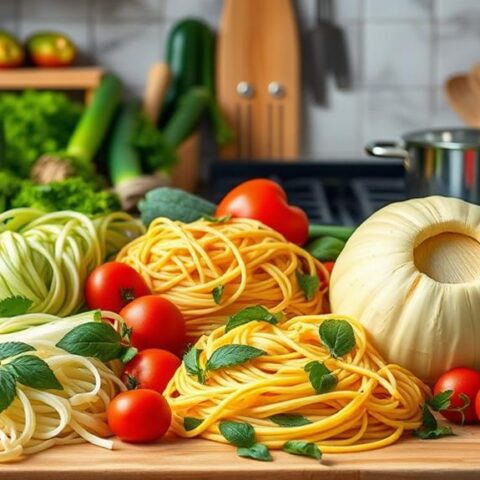
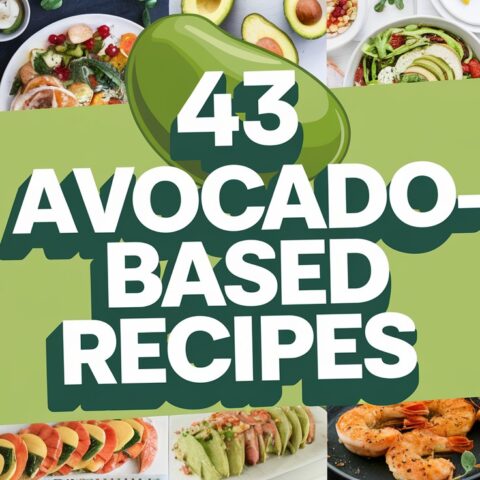
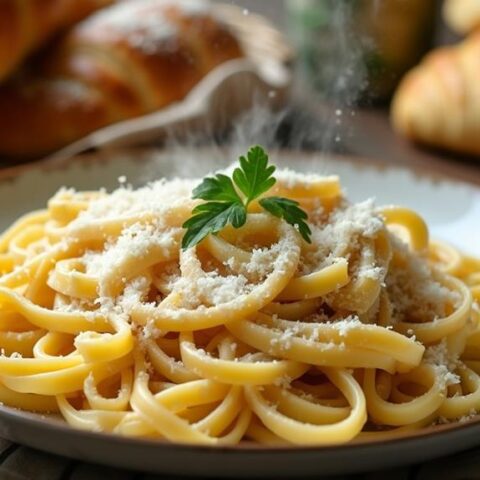
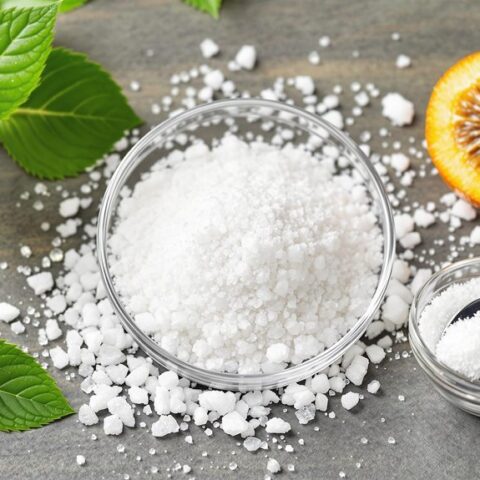




No Comments